1910s
The Bullet Knife

Don't bring a bullet-knife to a gun fight. Or a knife fight. Or to any fight, really. It's just plain dumb.
Original ad here.
Posted By: Paul - Wed Feb 19, 2014 -
Comments (7)
Category: 1910s, Weapons
Life in America: 1915
Posted By: Paul - Mon Feb 17, 2014 -
Comments (5)
Category: Customs, 1910s, North America
No Touch Tango
From The Fort Wayne Sentinel - Jan 24, 1914: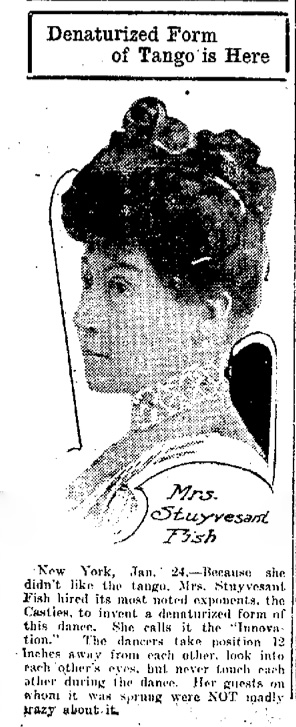
I found a picture on wikipedia of Vernon and Irene Castle demonstrating what appears to be this No Touch Tango developed by them at Mrs. Fish's request:
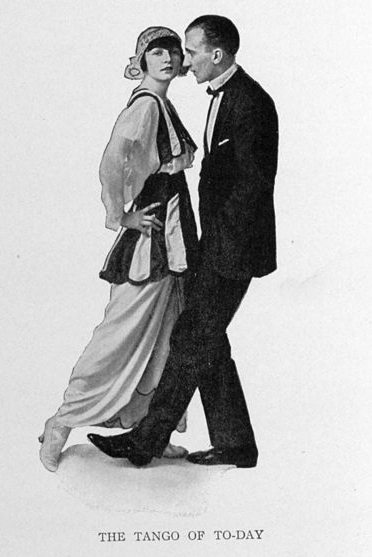
Posted By: Alex - Thu Jan 30, 2014 -
Comments (6)
Category: 1910s, Dance
Follies of the Madmen #215
Does anyone under the age of fifty even know who Felix the Cat is anymore? Having a character born in 1919 as your "hip" cartoon representative seems a somewhat dubious move to me. And Felix is only onscreen for like a millisecond.
Posted By: Paul - Sun Jan 26, 2014 -
Comments (9)
Category: Business, Advertising, Products, Soda, Pop, Soft Drinks and other Non-Alcoholic Beverages, Cats, 1910s
Weird 1915 Kite
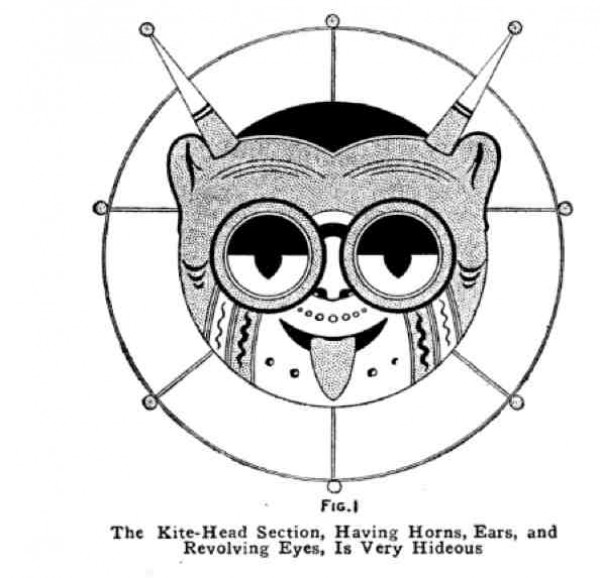
What was this home handyman in Popular Mechanics smoking?
Original plans here.
Posted By: Paul - Sat Dec 21, 2013 -
Comments (4)
Category: Recreation, Toys, Surrealism, Children, 1910s, Face and Facial Expressions, Fictional Monsters
Clean-O-Pore
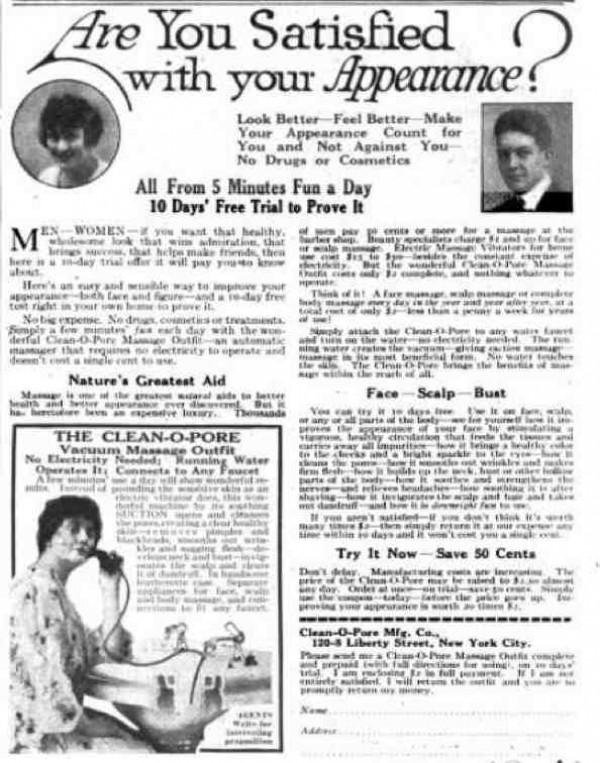
Original ad here.

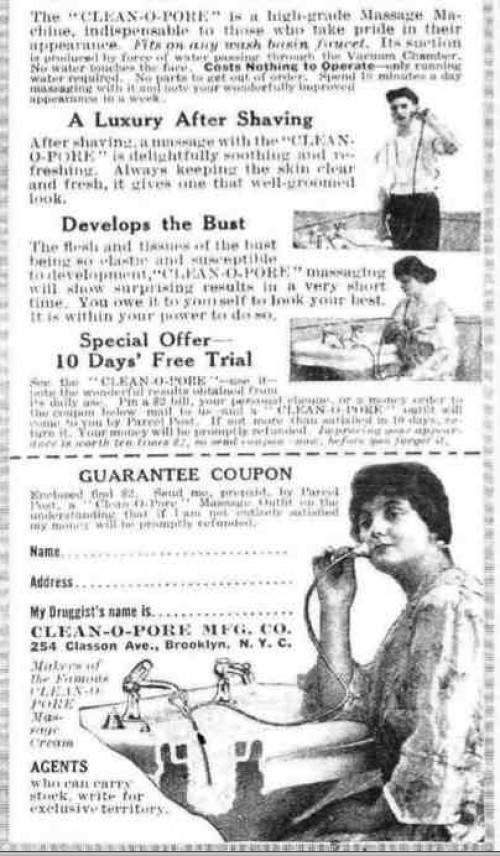
Original ad here.
Read the fascinating history of this device, plus others of the "vacuum suction" mode, at this site.
Posted By: Paul - Wed Dec 04, 2013 -
Comments (4)
Category: Technology, Baths, Showers and Other Cleansing Methods, 1910s
Why the poor are happier than the rich

From the Washington Post - April 30, 1916.
The gist of the article is summed up in the first paragraph:
As far as I can tell, the Duke of Manchester (William Montagu), wrote this without a hint of irony or sarcasm. He seemed to genuinely believe that being born rich was a great burden. So it's interesting that he did his best to relieve himself of his riches and become poor. From wikipedia:
Posted By: Alex - Sun Nov 10, 2013 -
Comments (4)
Category: Money, 1910s
Little Nemo in Slumberland

[Click to enlarge]
Surely one of the most enjoyably odd of the classic newspaper comic strips was Winsor McCay's famous LITTLE NEMO IN SLUMBERLAND.
Many of the strips are finally available online at this site.
Of course, if you desire glorious hardcopy, there are plenty of books too.
Posted By: Paul - Sat Nov 02, 2013 -
Comments (0)
Category: Dreams and Nightmares, Surrealism, Children, Books, 1900s, 1910s
The Man Who Owned the Salvation Army
The Salvation Army was founded by William Booth, a dedicated altruistic soul who ran it until his death in 1912.But he also had to be a canny businessman, and in 1878 he had the entire holdings of the enterprise put into his name as sole proprietor.
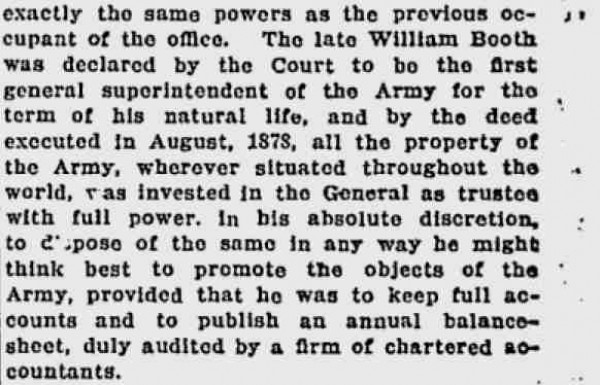
That paragraph above comes from this Australian newspaper, which state that at time of Booth's death the Australian holdings alone amounted to "over half a million pounds."
I find the figure of £975,000 for worldwide holdings from this 1912 biography of Booth. An online inflation calculator for British pounds figures that sum equals £81,700,000.00 today.
So the selfless General was a multimillionaire when he was Promoted to Glory and passed on the Sally to his son Bramwell.
I can't find any data on when the Booth family gave over control of the Army to some kind of board of directors. I assume they did. Did they?
Does any WU-vie have the answer?
Posted By: Paul - Mon Sep 23, 2013 -
Comments (17)
Category: Charities and Philanthropy, Money, 1910s
They Warn the Car Behind
From the Washington Post - May 2, 1915. So whatever happened to the idea of electric gongs supplementing turn signals.? Seems like it could actually be useful.
Posted By: Alex - Wed May 22, 2013 -
Comments (9)
Category: Motor Vehicles, Cars, 1910s

| Who We Are |
|---|
| Alex Boese Alex is the creator and curator of the Museum of Hoaxes. He's also the author of various weird, non-fiction, science-themed books such as Elephants on Acid and Psychedelic Apes. Paul Di Filippo Paul has been paid to put weird ideas into fictional form for over thirty years, in his career as a noted science fiction writer. He has recently begun blogging on many curious topics with three fellow writers at The Inferior 4+1. Contact Us |




